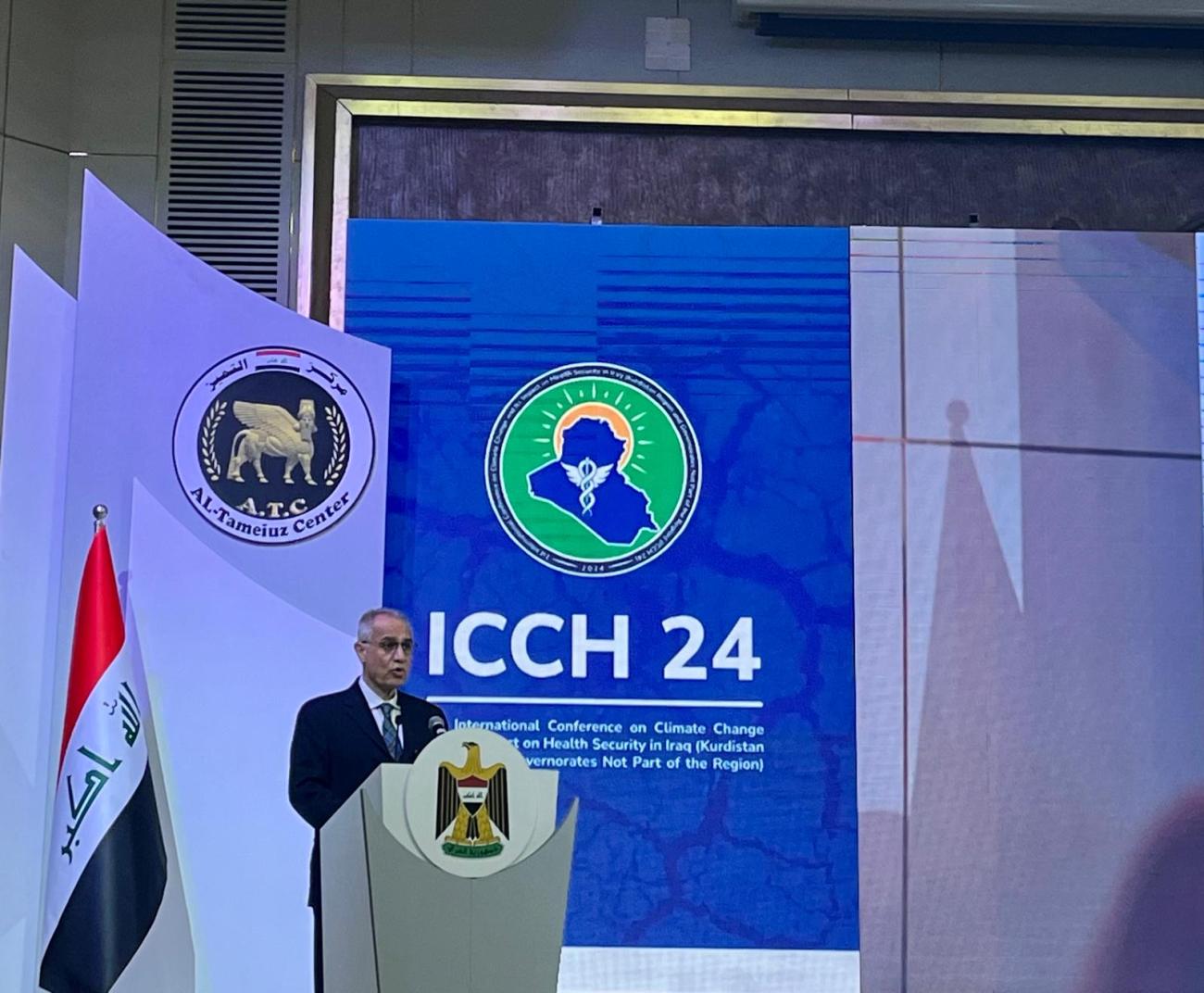Opening remarks at the Climate Change and Health Security Conference

The Deputy Special Representative of the Secretary-General, Resident Coordinator, and Humanitarian Coordinator for Iraq, Mr. Ghulam M. Isaczai
Your Excellency Mr. Abdulatif Rashid, President of the Republic of Iraq,
Your Excellency Mr. Qasim Al-Araji, National Security Advisor
Your Excellency Mr. Nizar Amidi, Minister of Environment
Your Excellency Mr. Saman Al-Barazanji, Minister of Health of the Kurdistan Region,
Distinguished Participants
Al-Salmu Alikum and Good morning.
I would like to thank [organizer] for this opportunity to speak at this important International Conference on Climate Change and Its Impact on Health Security in Iraq and the Kurdistan Region.
I would like to express my gratitude to President Rashid, and National Security Advisor Al-Araji for their leadership and commitment to this critical issue.
The theme of the conference is very relevant to Iraq.
Iraq faces increasing threats from climate change. Extreme weather events—including heatwaves, severe water shortages, sand and dust storms and floods—are affecting millions across the country.
These challenges do not only pose serious risks to public health and population but also reverses decades of development gains and delays Iraq’s progress to achieve the SDGs.
The UN has been working very closely with our government and development partners including CSOs on how to address and mitigate the impact of climate change on vulnerable population in Iraq.
For example, in Southern governorates the UN has launched a transboundary project between Iraq and Kuwait to address challenges related to sand and dust storms through eco-system restoration. Last year, we Launched a nationwide ‘green spirit’ communication campaign, to reach 15 million individuals, significantly raising public awareness on climate change and its impact on health.
We are providing support to farmers to enhance climate resilience of rural communities and support sustainable agriculture practices in drought-prone areas, through the distribution of drought-resilient seeds and modern irrigation tools, including solar systems for irrigation.
We also supported population access to safe drinking water in Basra and established 8 water treatment units in Baghdad and Ninewa benefiting 3.5 million residents and significantly enhancing public health.
Over the next two days, we have a unique opportunity to share our collective expertise, resources, and experiences and develop practical and effective strategies to protect Iraq’s communities from the worst effects of climate change, particularly in the health sector.
This requires improving health infrastructure, establishing early warning systems, and building healthcare systems that are resilient to climate impacts.
The United Nations is fully committed to working closely with the Government of Iraq, Kurdistan Regional Government, and all stakeholders to support these efforts. The United Nations has prioritized environmental sustainability and climate change as an orcharding theme in its new Cooperation Framework covering the next five years.
Our support to Basra Climate Conference and the establishment of the Water Task Force and Climate Advisory Group demonstrates our determination to address climate impact in Iraq.
I am confident that the outcomes of this conference will lead to stronger partnerships, new ideas, and practical solutions that will help secure a healthier and more resilient future for all Iraqis.
Thank you.

